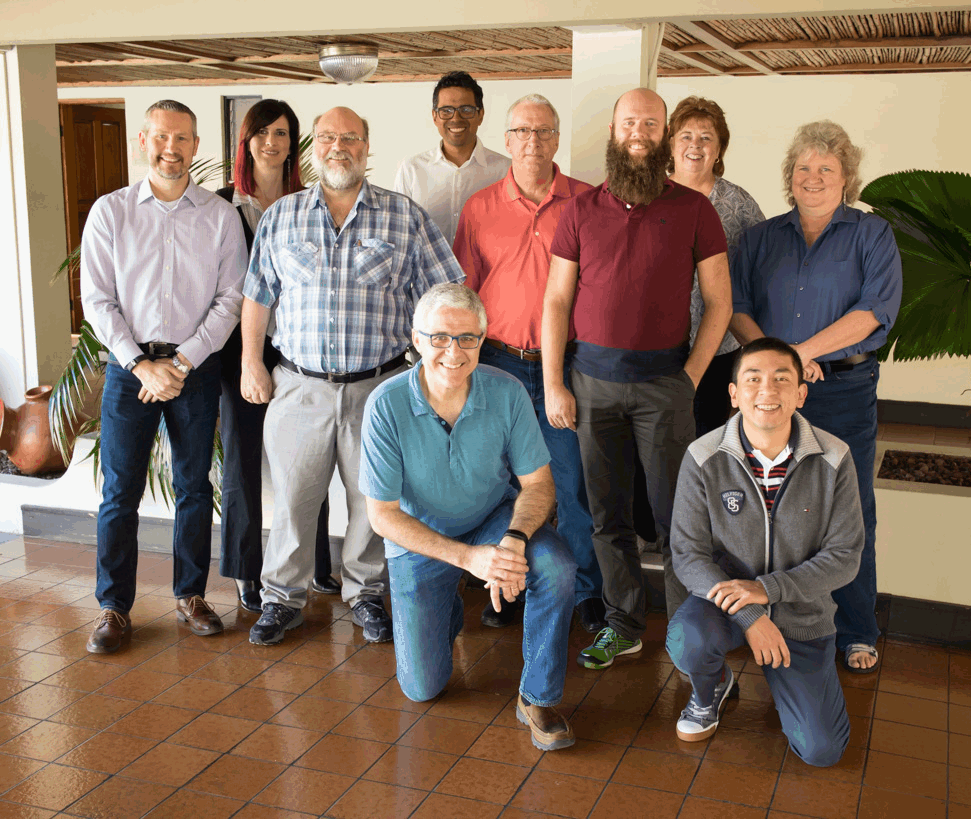2016 marks the fifth and final year SoftEd’s Shane Hastie will be on the Board of the Agile Alliance. We talk to Shane about the growth of the Agile Alliance over the past five years and the direction of Agile in the future.
For those who don’t know, what is the Agile Alliance?
The Agile Alliance is a non-profit organization that was founded by the authors of the Agile Manifesto after the original meeting in which they identified the values and principles of agile software development. Subsequent to drafting the Manifesto the Agile Alliance was formed as a vehicle to share knowledge of what agile development means and help spread the ideas through the software industry.
The mission statement of the Alliance is:
“We support those who explore and apply Agile principles and practices to make the software industry productive, humane, and sustainable.”
The primary activities of the Alliance are related to collecting and disseminating knowledge about all things Agile. The most visible of the activities has been the Agile 20XX conferences which run every year in North America. (Agile2016 will be held in Atlanta, GA 25-29 July). These conferences bring over 2400 people together from all around the globe, exploring what it means to be Agile in all aspects of their work.
In addition to the annual conference the Alliance supports and runs other events, such as the upcoming Agile Alliance Technical Conference and the OnAgile virtual conference (the next OnAgile conference will be held later this year – watch the Alliance website for details as they become available).
The Alliance is brand-agnostic – we support all who align with the thinking embodied in the Manifesto, irrespective of the label or specific approach they adhere to. Scrum, Kanban, Scrumban, eXtreme Programming, DSDM, Lean Startup, LeanUX and many more approaches fall under the “big tent” of the Agile Alliance.
In addition to running conferences the Alliance collects and shares content about Agile approaches, making it available through the resources section of the website.
The Alliance supports many events, conferences, meetup and local user groups around the world. The website contains an up to date list of these events, and communities.
A lot of the work of the Alliance is carried out by volunteers through initiatives – any member can propose an initiative and there is a shepherding process whereby initiatives are evaluated against the values of the Alliance and funding is allocated to support the mission. These initiatives cover a wide range of activities, from providing funding to user groups to being speakers from out of town (Speaker Reimbursement) to helping new community conferences get established (Conference Sponsorship) to training facilitators to teach high-school students skills needed to be successful in the modern world, using Agile ideas as the basis (Five Saturdays), and many more.
How long have you been part of the Board? What is your role/the Board’s role?
I was elected to the Board in 2011, and re-elected in 2013. My term ends at the end of this year, by which time I will have been on the board for five years. I was the Secretary of the board in 2015 and again this year.
The Board of the Alliance is responsible for setting policy and direction for the organisation. We set the strategic direction and approve funding for the various initiatives and staff activities of the Alliance.
One of my personal goals for being on the Board was to help change the organisation to have a more global focus. Historically the Alliance was perceived as being very North America-centric. In the five years I have been on the board we have seen a clear shift to a more global focus, with initiatives being undertaken in multiple countries and board membership with wide geographic distribution. This year there are more people on the board from outside the USA than those based in the USA.
One way we have exposed the internationalisation drive has been through the location of our board meetings. We hold at least one board meeting per year outside of North America, and part of the decision about where to hold a meeting is the opportunity to engage with the local agile community. Last year we had a meeting in Wellington (and we held an Open Space event for the local community where we had over 100 people come together for a fantastic day.
Last week we had our meeting in San Juan, Costa Rica and we had an event with the local Agile community, which was very well attended and supported.

This photo of the 2016 board of directors was taken at a face-to-face meeting in Costa Rica in February, 2016.
We supported the community in Brazil in their formation of a local Agile Alliance of Brazil, with a focus on the Agile Brazil conferences, and we are currently forming an Agile Alliance of New Zealand to help unite and share Agile knowledge across the various communities.
The Alliance has a number of staff who do a fantastic job on the day to day work of the Alliance. They look after such things as correspondence and engagement with the membership, the conference logistics, seeking sponsors and corporate members, marketing, maintaining the website, curating the website content and the general administration that’s needed by a not for profit organisation.
A number of board members are also engaged in Initiatives as volunteers; our roles as volunteers are distinct from our board membership.
In my volunteer capacity I have been directly involved with two initiatives:
- The Agile Extension to the Business Analysis Body of Knowledge™ – this is a joint venture with the IIBA, a team of volunteers wrote the content for the Agile Extension, which has become a much used reference for business analysis in Agile environments. There is a new initiative just starting to revise the extension to incorporate the latest thinking around Agile analysis.
- The Agile Manifesto Translation – the goal of this initiative is to have the Manifesto translated into as many languages as possible, and to use the translation as an opportunity to build local Agile communities. The idea is to have a team of native speakers collaborate on translating the manifesto into their own language, discussing and conveying the underlying meaning of the values and principles in the resultant translation, rather than simply doing a mechanistic translation. So far the Manifesto has been translated into 58 languages – you can see them here (scroll down past the first page to see the languages listed). The status of all the translations completed or under way can be found here. My role is to support the translation teams and administer the wiki which contains the translations.
Why is the Agile Alliance so important for the progression of all things Agile?
Because the Alliance is the “big tent” we provide a place for different ideas to meld together and for the best elements of all the different Agile approaches to combine and evolve. We are not tied to a single brand or model, and we actively encourage the evolution of Agile thinking through the events we run, the initiatives we support and through making the knowledge available to the global community.
The conferences and community events provide a wealth of knowledge, exploring what it means to be Agile, exposing new ideas and techniques to the scrutiny of the community and making the content available to the wider global community through the resources pages on the website and by supporting a wide range of events around the world, along with the support for the global Agile communities.
The Alliance strives to hold the space for Agile thinking in all its various forms and implementations, staying true to the ideas embodied in the Manifesto, and providing a forum for new ideas to emerge and be shared around the globe, free of commercial influence and bias.
What is the most pervasive trend in Agile at the moment?
There are a few things I see at the moment.
- First is the steady progression of Agile thinking into areas outside of information technology and software development. Organisations are recognising that the collaborative, creating thinking approach embodied in the Manifesto actually apply quite well to areas of the business outside of IT. Anywhere where the focus is on creative problem solving rather than simply following a predefined process is an area where Agile ideas can be applied.
- Within IT there is a strong push back to craftsmanship. The Manifesto emphasises the importance of technical skills and high quality in the work we do (“Continuous attention to technical excellence and good design enhances agility”) and we’re seeing a lot of emphasis on the strong technical practices as teams and organisations realise how important the technical underpinnings are to the products we build.
- The third trend is what I’m calling the “second wave” of Agile adoptions – over the last 15 years many companies have adopted Agile in their IT departments, often in name only without embracing the cultural change that is necessary to attain the benefits that are possible from an Agile transformation. Many of these half-hearted adoptions have failed, and the reputation of Agile has been tarnished as a result. Lately there are a number of organisations taking another look, this time with a clearer understanding about what is actually needed to be successful and with a real desire to make the cultural changes which will result in successful implementation, and real benefits for their people, their customers and their bottom lines.
What is the biggest issue facing organisations going Agile?
Adopting an Agile way of working is hard – it often requires that organisations let go of practices, procedures and attitudes which made them successful in the past. At its core Agile is a way of thinking that requires in a highly collaborative culture where people are recognised as the ultimate source of value and human creativity is needed to solve the hard problems facing the organisations. We live in a world of VUCA (volatility, uncertainty, complexity and uncertainty) – in this world we need new solutions and new ways of working, what made us successful in the past will actually prevent us from doing so in the future, we need to embrace agility in all its aspects and drive change in our workplaces.
The key to success is “being Agile”, not doing Agile. Doing Agile is about practices, processes and tools; being Agile is about the important aspects from the Manifesto – individuals and interactions, working solutions, customer collaboration and responding to change. These things require a new approach to teamwork and often significant change to organisational culture.
How has Agile changed in the time you’ve been a member of the Agile Alliance?
At its core the values and principles of the Agile Manifesto have not changed, but I see massive change in the practices and techniques, as well as a renewed emphasis on the people aspects of Agile adoption.
Agile thinking has spread around the globe, and these ideas have found fertile soil wherever they have landed. The processes and practices will differ from place to place and organisation to organisation, but the underlying mindset resonates with people in every culture and every society.
New ideas are constantly evolving, agility requires that we constantly learn. What we teach about Agile good practices today is different to what we taught 2,3,5 or 10 years ago. New methods, new techniques are emerging all the time.
Over my time on the Board we’ve seen changes in the Alliance as well – the board has shifted from a working Board to a policy Board, the Alliance’s financial position is strong and we have been able to engage more staff to deliver on the working aspects, this has resulted in more consistent and stable flow of work, new initiatives get supported by a dedicated staff who truly care about the wellbeing of the global software development community.
My fellow board members have been inspirational, being part of such a well-gelled team is a wonderful experience and I’ve been privileged to work with a group of courageous and passionate people who truly do live the values. We don’t always agree on everything, in fact, some of our most effective decisions have been made when we have started out disagreeing on a topic because we are able to safely explore all aspects of the decision options in respectful and passionate debate.
What role does SoftEd play in the movement towards the Agile mindset?
I’m proud to say that SoftEd has been part of the Agile movement from the very beginning. We hosted conferences in the early 2000’s where we brought many of the founders of the Agile movement out to New Zealand and Australia, we have been a corporate member of the Agile Alliance since 2003, and we’ve taught classes on Agile techniques since 2002.
This article was first published in the SoftEd blog.

![[Case Study] Lessons from descaling 25 Scrum teams](https://www.agilealliance.org/wp-content/uploads/2024/12/descaling-teams-1200x630-1-150x150.jpg)



![[Case Study] Lessons from descaling 25 Scrum teams](https://www.agilealliance.org/wp-content/uploads/2024/12/descaling-teams-1200x630-1-300x158.jpg)



